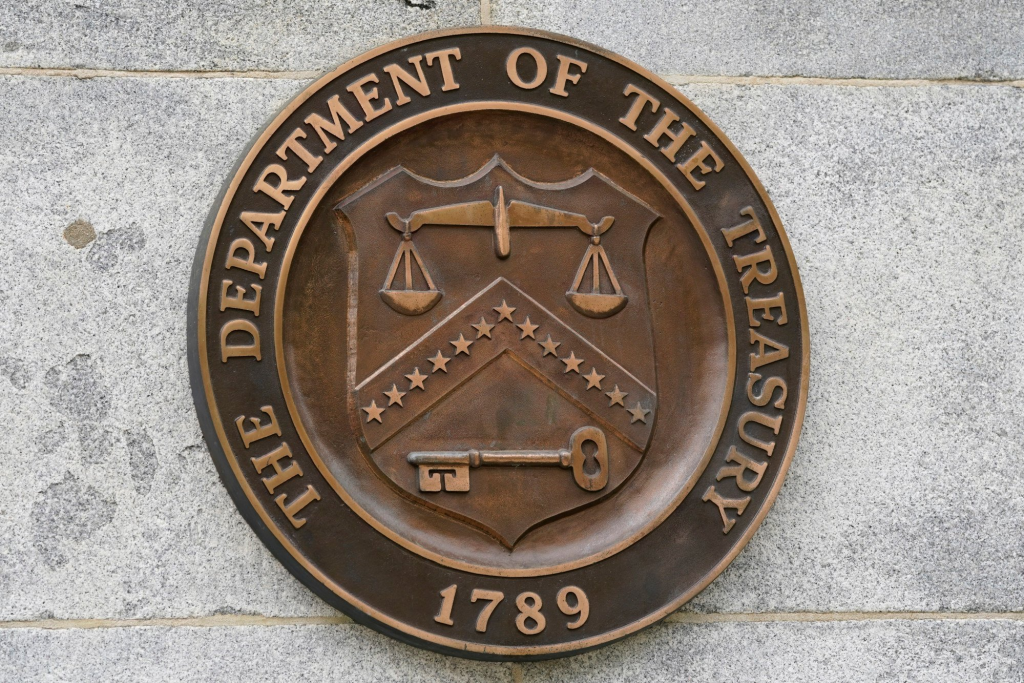
“We are increasing the risk for financial institutions dealing with Russia’s war economy and eliminating avenues for circumvention,” says US Treasury Secretary Janet Yellen.
The US has announced a new wave of sanctions, targeting entities in Hong Kong and mainland China, in an effort to curb Beijing’s ability to support Russia’s war efforts in Ukraine.
The Treasury Department’s actions target more than 300 individuals and entities in Russia, Hong Kong, mainland China, as well as Turkey and the United Arab Emirates “whose products and services enable Russia to sustain its war effort and avoid sanctions.”
The move is also in line with the pressure that Group of 7 leaders are expected to exert on Beijing at their meeting later this week.
“Today’s actions attack their remaining avenues for international materials and equipment, including their dependence on critical supplies from third countries,” said Treasury Secretary Janet Yellen.
“We are increasing the risk to financial institutions dealing with Russia’s war economy by eliminating avenues for evasion and decreasing Russia’s ability to benefit from access to foreign technology, equipment, software and IT services,” she said.
Moscow’s foreign ministry reacted quickly, saying the country would respond to the “aggressive” set of new sanctions.
“As always in such cases, Russia will not leave these aggressive actions unanswered,” said Foreign Ministry spokeswoman Maria Zakharova, quoted by the state news agency TASS.
Asked about the latest US measures, Liu Pengyu, the spokesman for Beijing’s embassy in Washington, said China was “committed to promoting peace talks” and that the country was “neither the creator of nor a party to the Ukraine crisis.” .
“China does not supply weapons to conflicting parties and strictly controls the export of dual-use items, which is widely applauded by the international community,” he said.
“Our normal trade with Russia is carried out transparently. It is consistent with World Trade Organization rules and market principles, and does not target any third party.”
Washington has been urging its NATO partners to be mindful of China’s role in supporting Russia’s war with Ukraine, arguing that Beijing should not be able to increase economic engagement with Moscow while seeking to maintain normal diplomatic and economic relations with Europe.
US President Joe Biden’s administration has signaled it would step up action against China over its support of Russia’s defense industrial base.
US Secretary of State Antony Blinken said his department and Treasury were “imposing further costs on Russia” in line with commitments from Group of 7 leaders, who are due to meet in Italy for their annual summit on Thursday. fair to Saturday.
“The United States remains concerned about the scale and breadth of exports from the People’s Republic of China that supply Russia’s military industrial base,” he said Wednesday. “The department is designating Chinese companies that supply Russia with a wide range of dual-use goods that fill critical gaps in Russia’s defense production cycle.”
According to a draft statement obtained by Bloomberg, G7 leaders are expected to urge China to stop allowing and sustaining Russia’s war in Ukraine.
“China’s continued support for Russia’s defense industrial base has significant and broad security implications,” the news agency quoted from the document, which would be finalized after the heads of Britain, Canada, France, Germany, Italy, Japan and the USA meet.
Some US lawmakers have also acted to achieve the same goal. The bipartisan No Limits Act, which would give Chinese military companies identified by the U.S. government 180 days to withdraw from the Russian market before facing “full blocking sanctions,” was introduced in the House of Representatives in April.
If it becomes law, the legislation would direct the Defense Department to identify export-controlled technologies at greatest risk of diversion through China and impose new, stricter national controls on them. It would also give the Commerce Department the authority to deny any export licenses.
Wednesday’s announcement detailed more than a dozen cases, including those in which transnational networks operated to launder gold from a Russian producer and acquire materials critical to Russia’s weapons program.

Describing it as a “complex, multilayered money laundering scheme,” the Treasury reported a case in which a Russian employee of the country’s largest gold producer worked with a Hong Kong-based associate.
The pair converted payments from the sale of Russian-origin gold into fiat currency and cryptocurrencies through shell companies in Hong Kong and the United Arab Emirates, according to the announcement.
The individuals and companies were designated “for operating or having operated in the metals and mining sector of the economy of the Russian Federation,” Treasury said.
In one case of procurement of unmanned aircraft systems, the Treasury said a Hong Kong-based company had shipped camera lenses, electronic integrated circuits and other components for drones to Russian end users.
Meanwhile, a company in mainland China had offered delivery via its own container trains to several Russian cities, supplying components worth more than $180,000 to entities in Russia, including those supplying equipment for unmanned systems, according to the announcement. .
“Russia’s military industrial base uses … an extensive network of Russian and foreign intermediary companies to purchase microelectronics and high-tech equipment produced abroad,” it said.
In the Treasury warning, many cases involved shipments and supplies of “high priority items” to Russia, which the U.S. Commerce Department defines as electronic components that “Russia seeks to acquire for its weapons programs.”
Electronic integrated circuits are of “greatest concern,” according to the department, due to “their critical role in the production of Russia’s advanced precision-guided weapons systems, Russia’s lack of domestic production, and limited global manufacturers.”
In one case, the Treasury said a Russian national had sent millions of dollars worth of electronic integrated circuits and other high-priority technology items to Russia through his network of Hong Kong-based import-export companies, including a your property.
Via South China Morning Post.
Source: https://www.ocafezinho.com/2024/06/13/nova-onda-de-sancoes-dos-eua-a-ucrania-inclui-alvos-em-hong-kong-e-na-china-continental/

